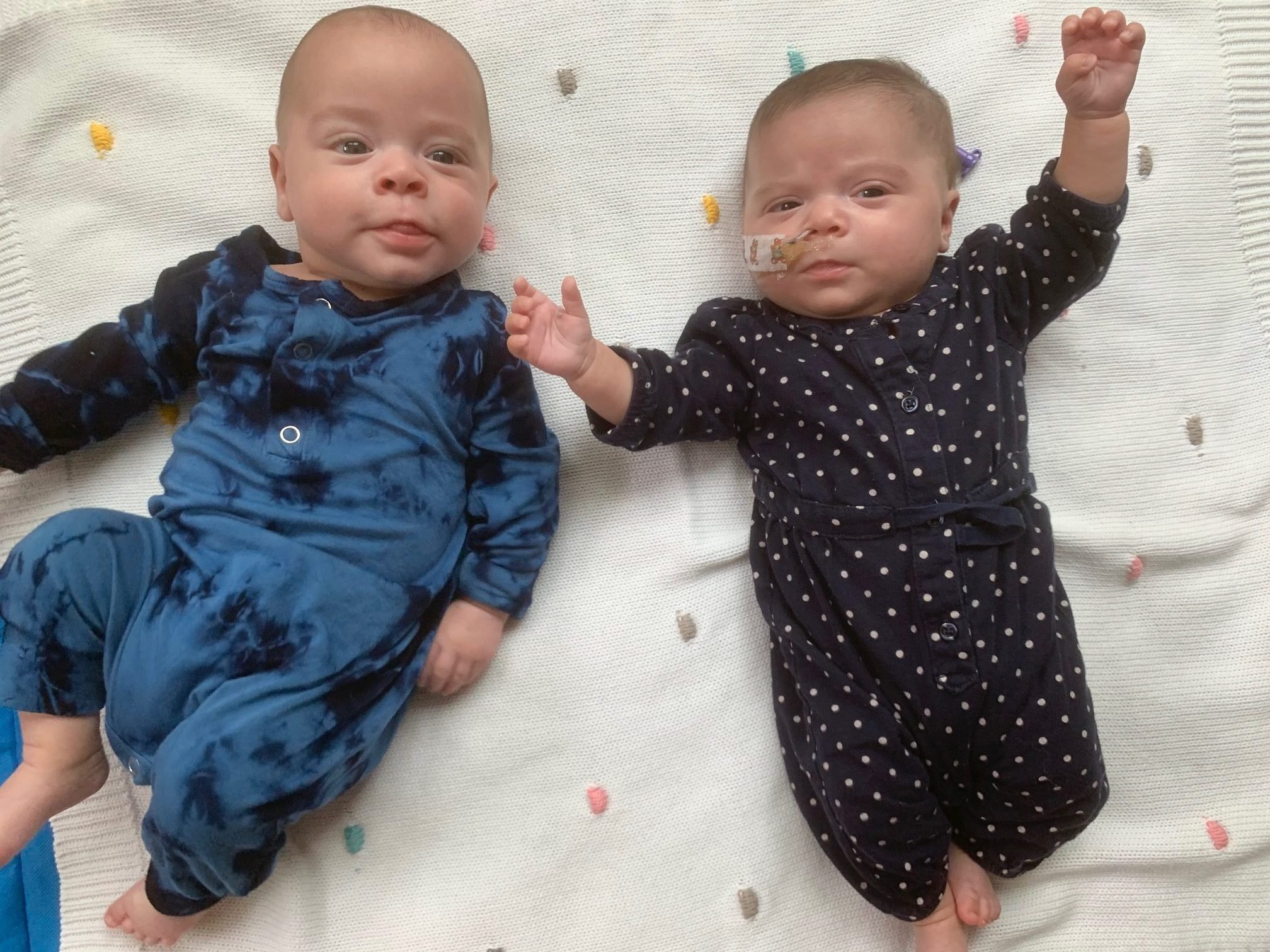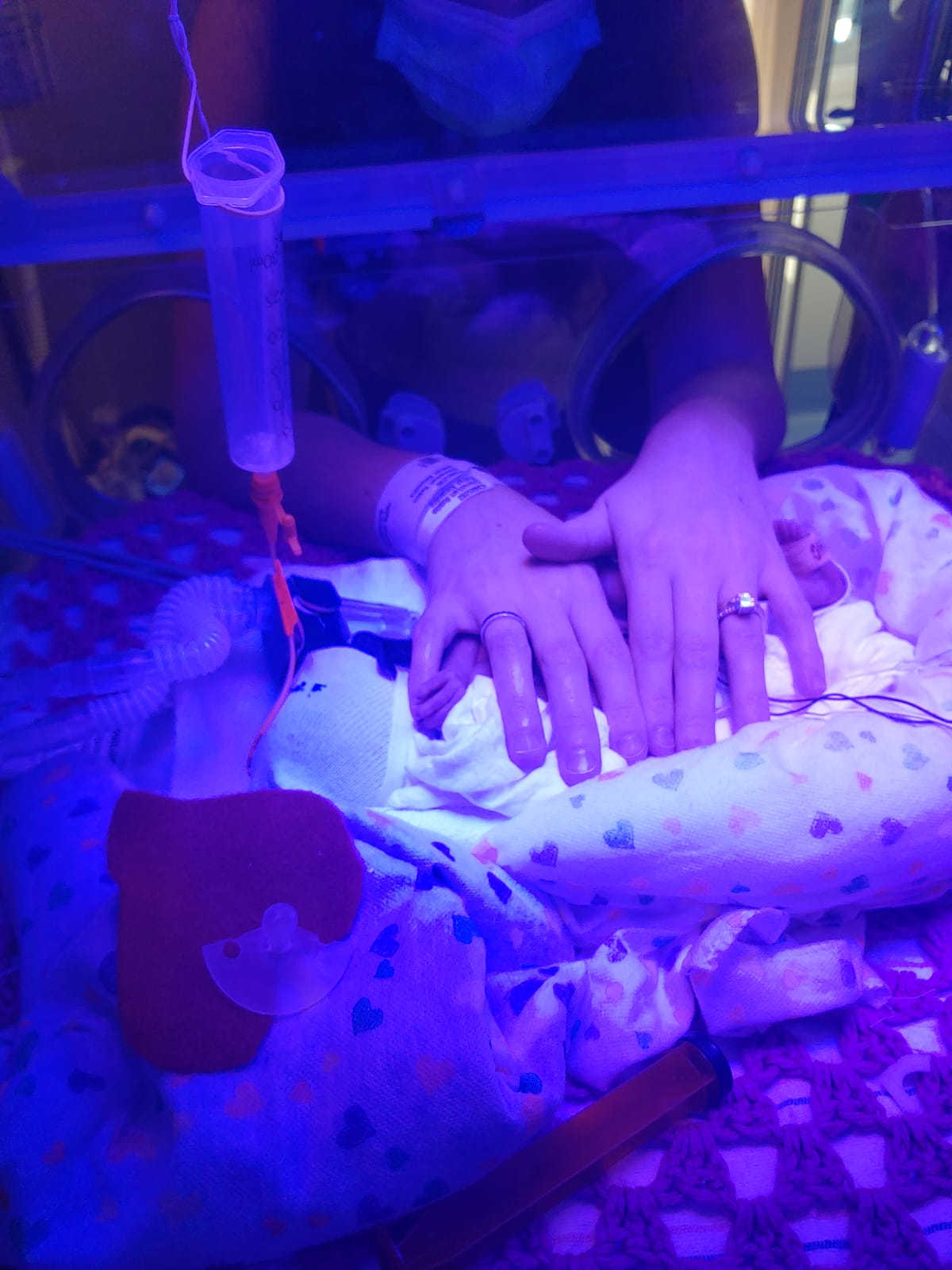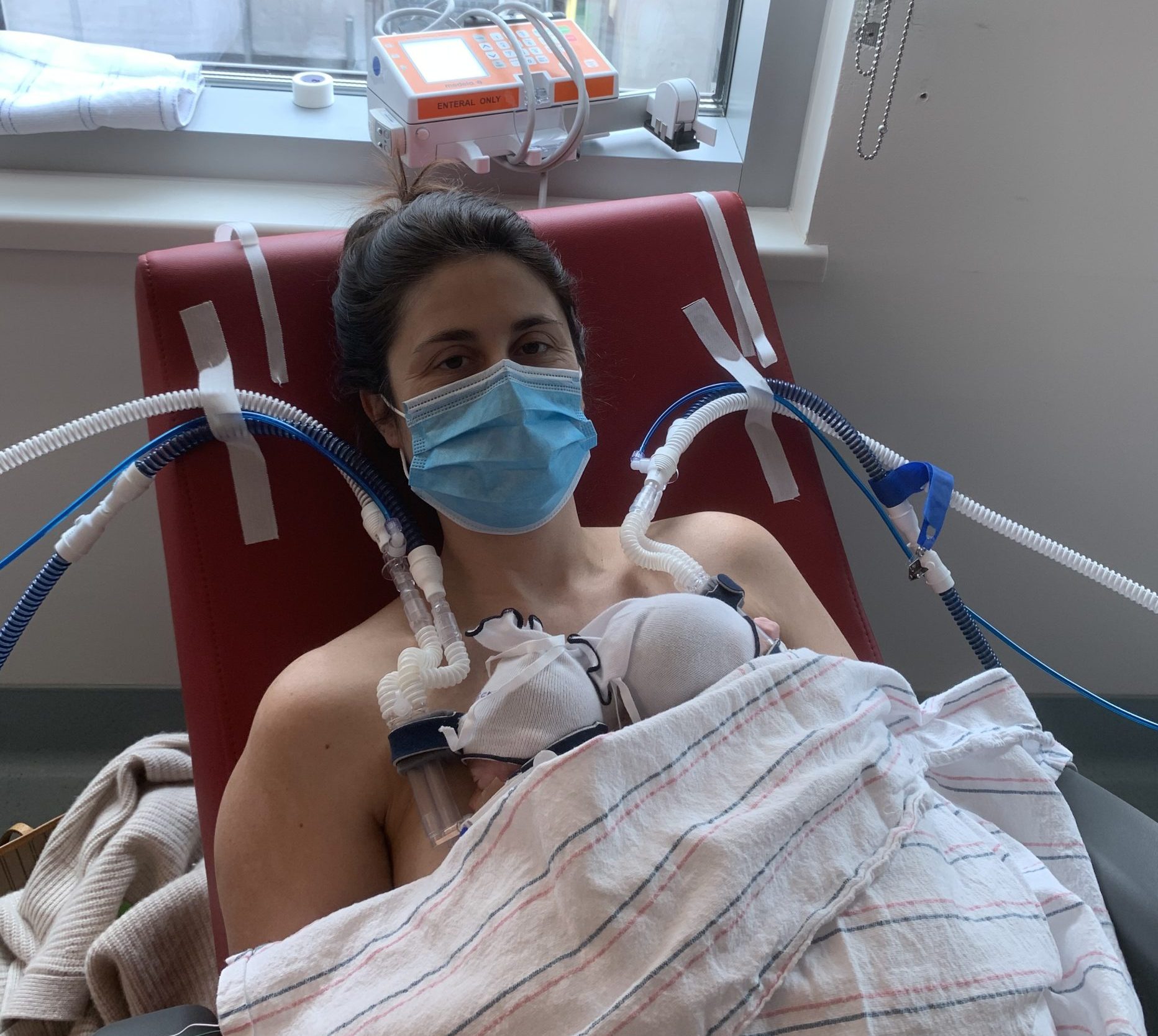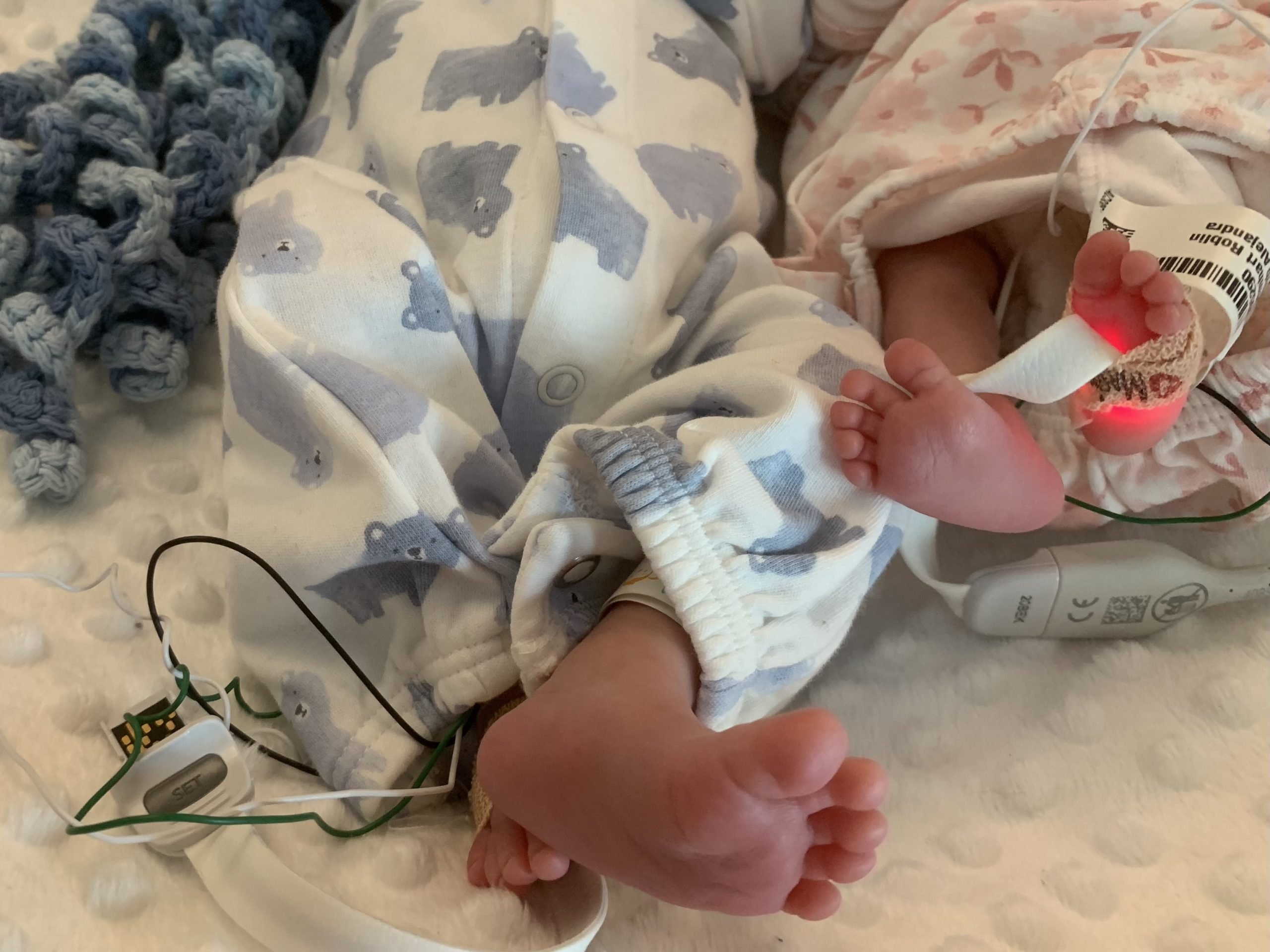
November is Prematurity Awareness Month, and in the name of raising awareness, I’d like to share the story of my antenatal and NICU experience with premature twins.
When I received the incredible news that I was pregnant again (a magical gift for my grandma on her birthday), my husband and I were overjoyed and eager to share our happiness with the world. However, with the COVID-19 pandemic raging and with vaccines still in development, my husband couldn’t accompany me to my OB or ultrasound appointments as he had done with our first daughter. To our astonishment, my first ultrasound revealed I was expecting twins.
During one of my routine checkups, I received the news that my baby girl wasn’t growing as expected, and she was diagnosed with intrauterine growth restriction (IUGR). Despite having what was considered the “safest” type of twin pregnancy, where each baby has their own placenta and umbilical cord, this news came as a shock. Considering that my first pregnancy had gone to 41 weeks, my OB had been optimistic about a full-term pregnancy with twins, usually around 36-37 weeks.
I was blindsided when the maternal-fetal medicine doctor advised hospitalization for closer monitoring and the likelihood of premature birth. We were just entering week 27, and their new “due date” was now just 10 days ahead.
I was frightened about what being hospitalized meant — where would I sleep, who would be with me, what would it be like having premature twins. A myriad of questions raced through my mind. I called my parents from our brand-new home (we had just moved two days prior) in tears and desperation. As I frantically searched for my clothes (since we were still unpacking after our move), I hastily put as much as I could fit in a suitcase.
I remember “rolling” into the antenatal floor at Brigham and Women’s Hospital — not unlike checking into a hotel — with my large red suitcase brimming with maternity clothes, just in case Covid restrictions prevented me from receiving clean clothes from outside.
After days of constant testing, monitoring, and a “stable” prognosis, I was granted my constant request to return home and see my daughter, Emilia. Going home meant committing to daily monitoring at the hospital until a few days later, when I would be admitted “for good” — until the twins were born.
I treasured every moment at home, from the simple pleasures of a warm shower to cuddling with Emilia and sleeping in my own bed next to my husband. Friday arrived too swiftly, and I was back to the routine of constant monitoring and prenatal non-stress tests, feeling like a human incubator. Despite the hassle, I was keenly aware that this was one of the most important tasks of my life.
Skipping ahead 18 days from the initial diagnosis, my twins defied the odds and were born prematurely at 29 weeks and 5 days. Max weighed 3 pounds, and Anna weighed just 1 pound and 10 ounces.

My resilient warriors transitioned from their personal incubator to the NICU, while I transitioned to the world of “pumping life.”

Upon my discharge, my husband and I returned home with our arms empty and tears in our eyes. Thankfully, Emilia was there to remind us that the future held a bright promise. Children possess a special magic — the moment you hold them, everything feels better.


After 80 days in the NICU for Anna and 81 days for Max, all five of us were finally home together. Our tiny warriors had defied the odds — they came home as newborns! However, it came with the realization that premature babies require extra care and numerous doctor’s appointments. Even now, I can hardly believe how blessed we are, and that the masterplan worked in their favor.












